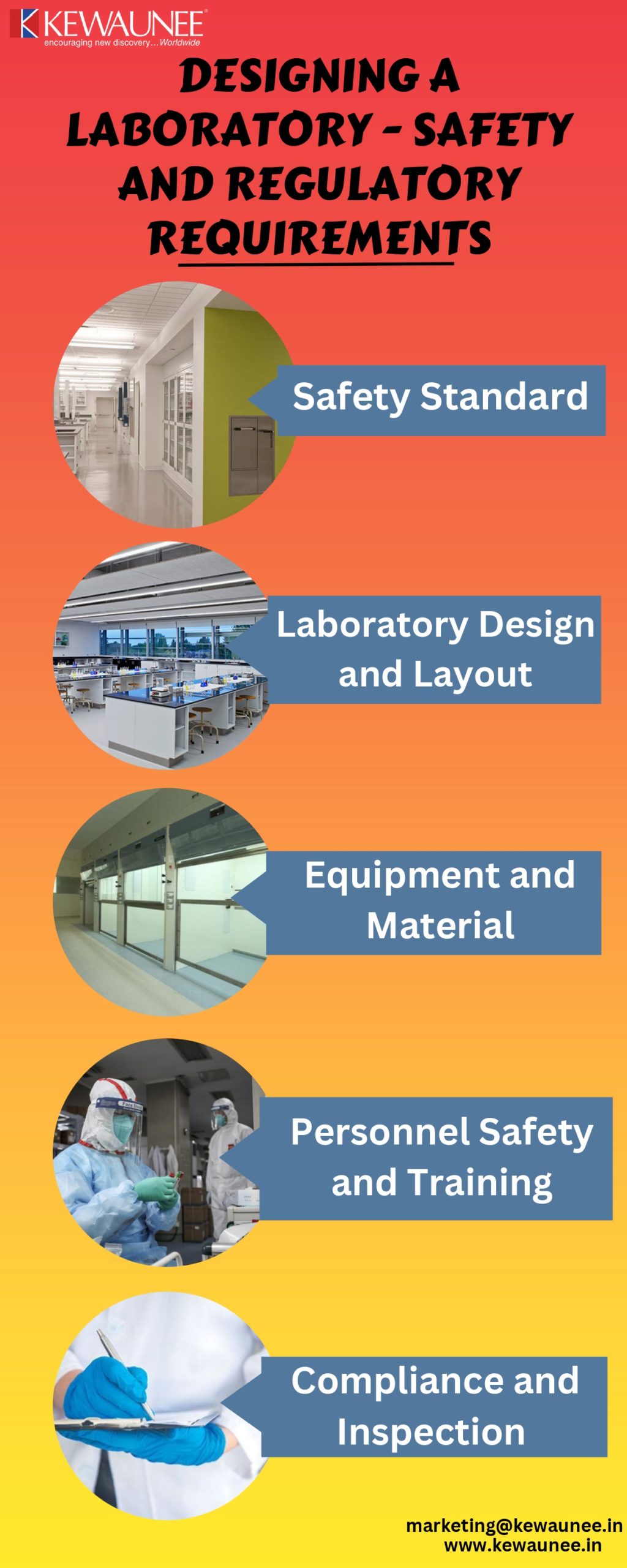Designing A Laboratory Safety And Regulatory Requirements
Designing a laboratory can be a complex and challenging task that requires careful planning, design, and consideration of safety and regulatory requirements. Ensuring compliance with safety and regulatory standards is essential to ensure the safety and health of laboratory workers and the integrity of experiments.
In this blog, we will discuss the importance of safety and regulatory requirements in designing a laboratory, the different safety standards that must be met, laboratory design and layout, equipment and materials, personnel safety and training, compliance and inspection, and the importance of proper planning, design, and maintenance to ensure compliance.
Introduction
Designing a laboratory can be a complex and challenging task that requires careful planning, design, and consideration of safety and regulatory requirements.
Ensuring compliance with safety and regulatory standards is essential to ensure the safety and health of laboratory workers and the integrity of experiments.
Non-compliance with safety and regulatory standards can lead to serious consequences, including fines, penalties, and even criminal charges.
Safety Standards
OSHA standards: OSHA (Occupational Safety and Health Administration) sets standards for the safety and health of workers in the United States.
NFPA standards: NFPA (National Fire Protection Association) sets standards for fire safety in the United States.
Local building codes: Local building codes set standards for the design and construction of buildings, including laboratories, in a specific area. It is important to ensure compliance with all applicable safety and regulatory standards in the design and construction of a laboratory.
Laboratory Design and Layout
Workflow and ergonomics
The layout and design of the laboratory should take into account the workflow and ergonomics of laboratory workers to ensure their safety and comfort.
Equipment placement and accessibility
Equipment should be placed in a way that is easily accessible to laboratory workers and minimizes the risk of injury.
Fire safety and emergency planning
Fire safety and emergency planning are essential components of laboratory design and layout. This includes fire suppression systems, emergency exits, and evacuation plans.
Equipment and Materials
Selection and procurement
The selection and procurement of equipment and materials should take into account safety and regulatory requirements.
Maintenance and upkeep
Proper maintenance and upkeep of equipment and materials are essential to ensure their safe operation and prolong their lifespan.
Hazardous materials and chemical storage
Proper storage of hazardous materials and chemicals is crucial for the safety of laboratory workers and the environment.
Personnel Safety and Training
Personal protective equipment
Laboratory workers must be provided with the appropriate personal protective equipment to ensure their safety.
Safety procedures and protocols
Laboratory workers should be trained on safety procedures and protocols to minimize the risk of injury.
Training and education
Regular training and education on safety and regulatory requirements are essential for laboratory workers.
Compliance and Inspection
Compliance with safety and regulatory standards
Compliance with safety and regulatory standards is essential to ensure the safety and health of laboratory workers and the integrity of experiments.
Regular inspections and audits
Regular inspections and audits are necessary to ensure compliance with safety and regulatory standards.
Documentation and record keeping
Proper documentation and record keeping are necessary to demonstrate compliance with safety and regulatory standards.
Conclusion
Ensuring compliance with safety and regulatory requirements is essential to ensure the safety and health of laboratory workers and the integrity of experiments.
Proper planning, design, and maintenance are essential to ensure compliance with safety and regulatory requirements.
Comments are closed.











